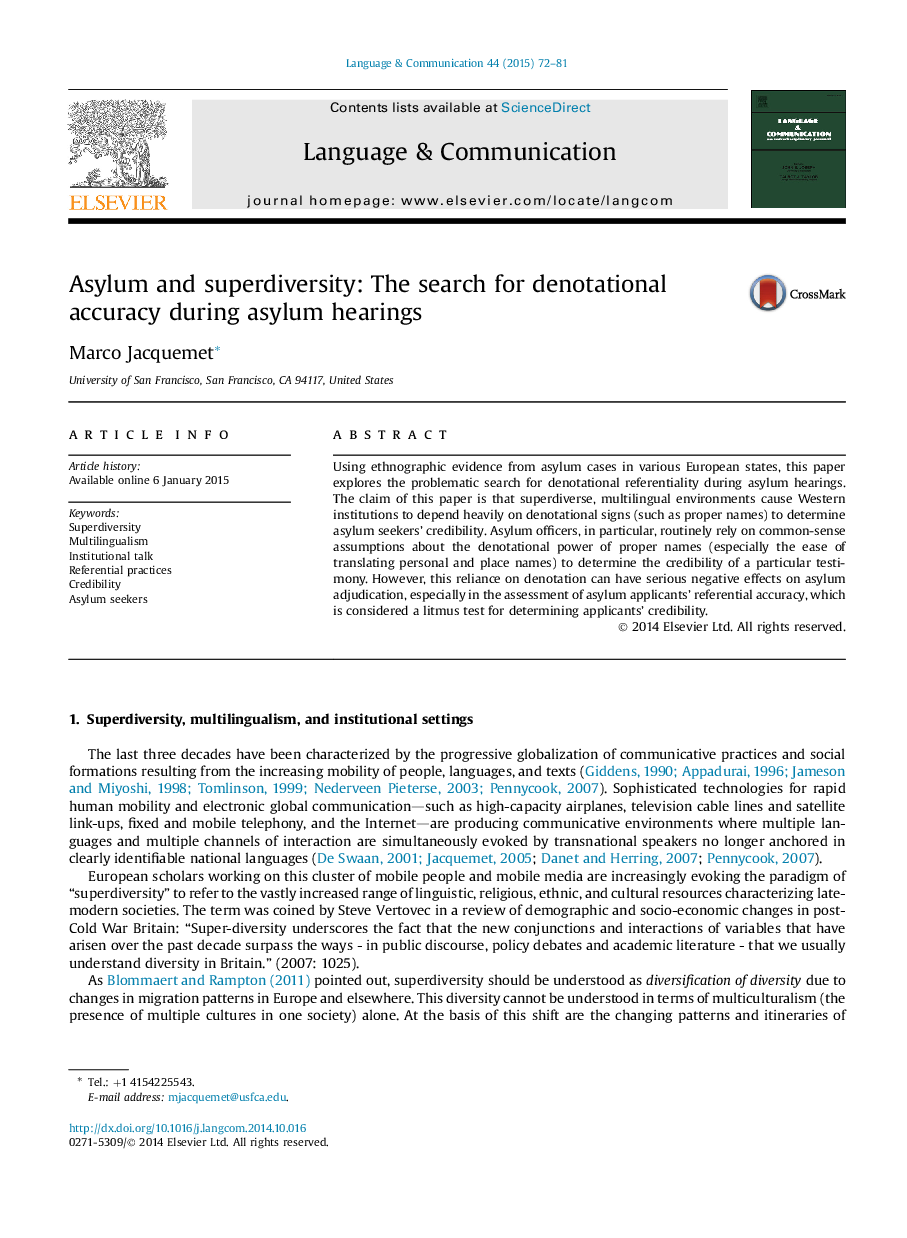| Article ID | Journal | Published Year | Pages | File Type |
|---|---|---|---|---|
| 934714 | Language & Communication | 2015 | 10 Pages |
•Lack of shared knowledge and linguistic predictability in a superdiverse environment.•Speakers in multilingual environments increasingly rely on denotational reference.•Asylum claims are shaped by a culture of suspicion.•The problematic nature of probing for proper names during asylum depositions.
Using ethnographic evidence from asylum cases in various European states, this paper explores the problematic search for denotational referentiality during asylum hearings. The claim of this paper is that superdiverse, multilingual environments cause Western institutions to depend heavily on denotational signs (such as proper names) to determine asylum seekers' credibility. Asylum officers, in particular, routinely rely on common-sense assumptions about the denotational power of proper names (especially the ease of translating personal and place names) to determine the credibility of a particular testimony. However, this reliance on denotation can have serious negative effects on asylum adjudication, especially in the assessment of asylum applicants' referential accuracy, which is considered a litmus test for determining applicants' credibility.
